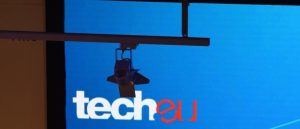
Happy Friday!
Our research team tracked 50 tech funding deals worth more than €279 million, as well as 5 M&A transactions and 1 IPO across Europe, including Russia, Israel, and Turkey.
We listed every single deal in our weekly newsletter (note: the full newsletter is now available to paying subscribers only). Here’s an extra overview of the 10 biggest European tech news items for last week:
1) Apple is taking control over the power-management technology at the heart of its iPhones in a $600 million deal with Dialog Semiconductor that also secures the German-listed company’s role as a supplier to the US tech giant.
2) Copenhagen-based visual effects startup Spektral was acquired by Apple for $30 million at the end of 2017 in a deal that was only disclosed this week. The company focused on applying machine learning techniques to image and video editing.
3) Helsinki-based Varjo, founded in 2016, has secured a $31 million Series B investment led by Atomicoto bring its technology to market as what it claims is the world’s first VR / XR hardware and software product specifically aimed at industrial use. The round, which brings Varjo’s total funding raised to $46 million, was joined by Next47, the Siemens-backed venture firm, as well as previous backers EQT Ventures and Lifeline Ventures.
.
http://tech.eu/brief/these-were-the-10-biggest-european-tech-stories-this-week-october-12/


